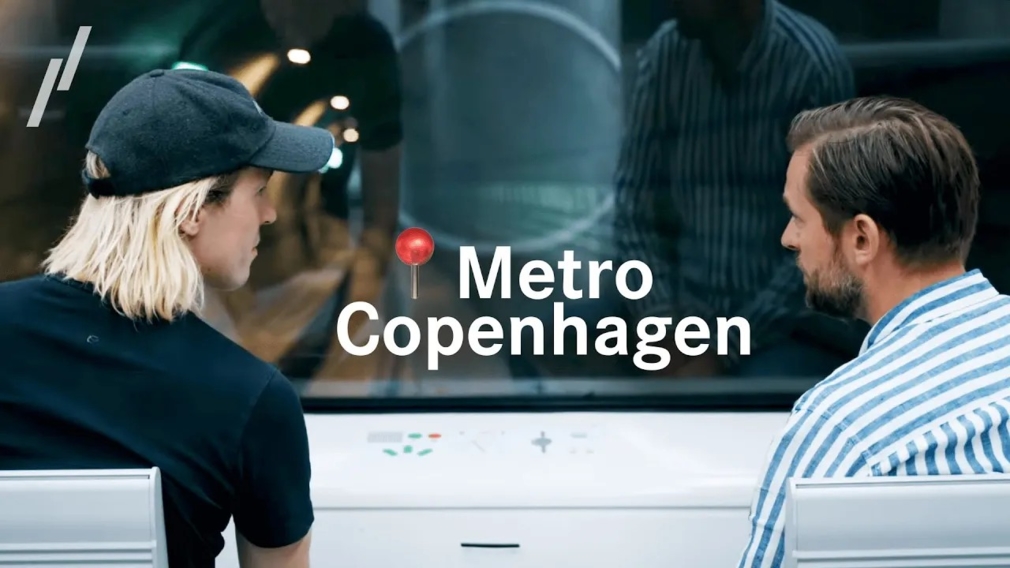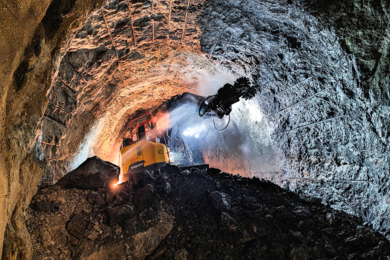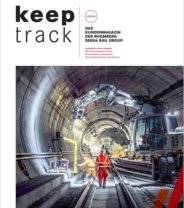It runs every few minutes, carries thousands of people to their destinations every day, and remains mostly invisible: the metro is the backbone of modern cities. Copenhagen is no exception – and the Rhomberg Sersa Rail Group (RSRG) was right in the middle of it. Together with joint venture partner Efacec, RSRG was responsible for the complete railway equipment of the new M4 metro line. A little over a year after the official opening, two colleagues who were deeply involved in the project look back: Magdalena Kranawetter, then Site Manager, now Contract Manager – and Mariusz Kalinowski, Business Development Manager.
The M4 extension of the Copenhagen Metro runs for around 4.6 km, mostly underground, and connects the city centre with the emerging district of Sydhavnen. For Rhomberg Sersa Rail Group, the project meant complex tunnel construction processes, tight schedules and high demands in terms of logistics and coordination.
Magdalena Kranawetter vividly recalls: "It’s now been over a year since the M4 extension opened, and I still clearly remember our first ride on 'our' tracks. The project was complex and challenging, but thanks to strong team spirit and great collaboration, we completed it successfully."
Mariusz Kalinowski also looks back with pride: "Every time I ride the M4 today, I feel a deep sense of gratitude. We were part of a project that delivers tangible value to the city every single day. It was technically demanding and full of unexpected challenges – but it was the close collaboration and solid planning across all teams that made it a success."
Building in a dense, inner-city tunnel environment brings special challenges for logistics, coordination and flexibility. Magdalena explains: "As you can imagine, space in a city like Copenhagen is extremely limited. So careful planning of storage areas and close coordination with other trades were absolutely essential. The COVID-19 pandemic added further complications – many of us, myself included, weren’t living on-site."
Mariusz also emphasises the complexity of the project: "Building in an inner-city tunnel requires absolute precision. Tight time windows, strict safety regulations and continuous coordination with what’s happening above ground make it especially demanding. To keep everything running smoothly, you need a focused team, solution-oriented thinking – and above all: clear communication."
More Than Just Tracks
Metro projects like the one in Copenhagen make a significant contribution to sustainable urban development. They are more than just infrastructure – they transform how people move through a city and how urban spaces are designed for the future.
"In a growing city, an efficient underground public transport system is key to less traffic, cleaner air and more space for city life – for pedestrian zones, green spaces or cycle paths," says Mariusz. "The metro is not just a means of transport – it's an active contribution to quality of life."
In densely populated urban areas, underground metros help relieve pressure on city centres and provide a real alternative for sustainable mobility. Magdalena experienced this social impact firsthand: "People in Copenhagen were genuinely excited when I mentioned I worked on the M4. It’s great to see how well the new connection has been received – and that many people are now choosing to leave their cars at home. That benefits not just the city, but the environment too."
A Project That Lasts
For both Magdalena and Mariusz, the M4 is not just a completed infrastructure project – it’s a personal highlight.
"During that time, I learned a lot about myself and the importance of a strong team," says Magdalena. "We were like a little family, facing highs and lows together. Despite all the challenges, I look back on that time with great joy."
"For me, this was more than a construction project," Mariusz adds. "We didn’t just build infrastructure – we actively contributed to the future of urban transport in Copenhagen. That’s what makes this work so special."
Metro M4 Extension at a Glance
- Tunnel section: 4.6 km (two tubes)
- Stations: 5 new stations from Havneholmen to Copenhagen South
- Construction period: Autumn 2021 – October 2022
- Materials & technology: 25,600 LVT slabs, 1,000 t of rails, 9,300 m³ of concrete, 42 km of cable, 25 km of cable ducts
- Contract value: approx. €18.5 million
Watch our video to get a closer look at how this underground project in Copenhagen was brought to life:







